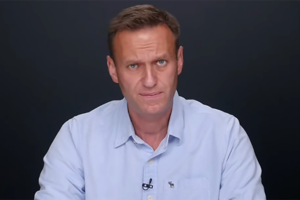Biden sanctions will affect less than 0.5% of US supplies to Russia

On March 18, 2021, new US sanctions came into force due to the poisoning of opposition leader Alexei Navalny with what Western governments believe was the internationally banned Novichok military substance. Sanctions from various agencies, including the State Department and the US Department of Commerce, were announced on March 2 and were supposed to take effect after a mandatory 15-day period.
The Russian Foreign Ministry called the US actions an attempt to interfere in internal affairs using as a pretext "a deliberately staged provocation with the alleged "poisoning" of Navalny with some "combat chemicals."
The new sanctions include the blacklisting of several Russian officials and government entities by the U.S. Treasury, several symbolic State Department measures (such as halting virtually non-existent U.S. arms exports to Russia), and tightening DOC restrictions on the export of dual-use goods and technology to Russia. A document from the Bureau of Industry and Security (BIS) of the US Department of Commerce on the entry into force of export restrictions was published in the American Government Gazette.
From the BIS statistics studied by RBC, it follows that the first sanctions imposed by the administration of US President Joe Biden in terms of export restrictions will affect less than 1% of annual US supplies to Russia in monetary terms.
“Many leaders of the Russian electronics industry have long been on the sanctions lists of the US Department of Commerce, so import substitution in terms of the component base in critical areas of technology is an ongoing process,” Deputy Minister of Trade and Industry of Russia Oleg Bocharov commented to RBC. According to him, the Ministry of Industry and Trade provides support to domestic manufacturers and developers, including subsidies, tax incentives for developers of electronic products, etc., and is working to stimulate demand for end products and microprocessors. “Moreover, the radio electronics market today is not only technologies from the United States, it includes a number of affordable products from other countries,” Bocharov said.

























































